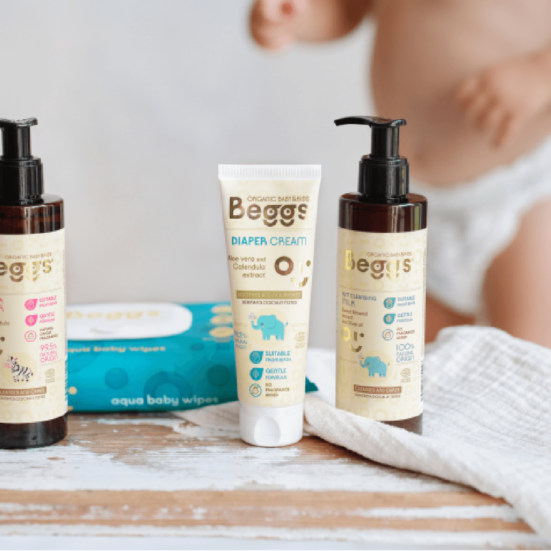The story of the discovery of omega-3 acids is as fascinating as their actual use and effects. It is associated with the indigenous inhabitants of Greenland – the Inuit, who have been found to have a minimal incidence of heart disease compared to other nations. By monitoring their eating habits, scientists discovered that the secret to a healthy heart1 is hidden in fish and essential fatty acids. In addition to the beneficial effect on the cardiovascular system, Omega-3 also have a number of other benefits. They are a key nutrient affecting all stages of pregnancy, baby development, breast milk quality, and even your mental state or menstrual flow.
Do you know… a recent clinical study2 showed that women taking omega-3 supplements were 1.5x more likely to get pregnant than women not taking them? Supplementation can thus represent one of the other options for improving fertility.
Fats that your body loves
Omega-3 fatty acids are considered as “healthy fats”. They help all the cells to function as they should, supply the body with energy, regulate inflammatory processes, strengthen the health of the heart, eyes, brain and other physiological systems3. Omega-3 are an essential nutrient that your body needs. Since the body cannot produce them itself, the only possible source of their intake is food and food supplements. There are three main types of omega-3:
- ALA (alpha-linolenic acid) is the most common form of omega-3. You can find it in a plant-based diet, especially in green leafy vegetables, nuts and seeds.
- DHA (docosahexaenoic acid) is the “marine omega-3”. It is found in fish and algae. It is responsible for the development and function of the brain and eyes. It supports the supply of eggs in the ovaries, the quality of hair, skin and nails.
- EPA (eicosapentaenoic acid) is also a marine omega-3. It improves mood, balances hormonal imbalance, suppresses inflammatory processes and affects a number of other functions in the body. Studies have also found that insufficient amounts of EPA can limit the transfer and uptake of DHA into fetal cells.
Do you know that… DHA represents up to 12% of the total weight of the human brain? Its deficiency is associated with impaired cognitive development in children and an increased incidence of neurodegenerative diseases such as Parkinson’s disease and multiple sclerosis in adults4.
Natural help with pregnancy
As already mentioned, omega-3s play an important role in the successful conception of a child, as well besides thanks to regulating hormones, increasing blood flow to the uterus, reducing inflammation in the body, and improving the ability of the embryo to implant in the uterus. In addition, optimal omega-3 levels have been shown to extend reproductive lifespan in women over 35 years5.
Food supplements with omega-3 are also important for male fertility. Studies have revealed that they can significantly improve the concentration and mobility of sperm6.
Our tip: If you want to improve your health and your chances of getting pregnant, we recommend that you and your partner increase your dose of omega-3 to 1000 mg per day7.
Do you know that… healthy omega-3 fats support the formation of your developing baby’s brain and nervous system once you get pregnant?
Pregnancy as it should be
Essential fatty acids support baby’s brain development and cell growth. Especially during the third trimester of pregnancy, when growth accelerates significantly. Omega-3 supplementation in women with low omega-3 levels has also been shown to maintain a normal length of pregnancy, leading to a lower incidence of premature births (a major cause of fetal and infant health problems). Another advantage is the reduction of the risk of preeclampsia (poor development of the placenta) – a serious complications for both the baby and the mother8. Omega-3 levels are also linked to brain function and moods. They can thus affect the overall comfort of a woman during pregnancy.
To be well even after giving birth
Balanced omega-3 levels are critical for the nutrient content of breast milk, brain function, mental and hormonal balance, and overall postpartum recovery. During pregnancy, many women’s stores of essential fatty acids are depleted. The deficiency often worsens during subsequent pregnancies. Ensuring the necessary supply of omega-3 in the postpartum period is a significant health benefit for both the child and the mother, also from the point of view of subsequent pregnancies.
Top reasons to keep taking omega-3
„Smart Milk“
A child’s brain grows most rapidly in the last trimester of pregnancy and in the first two years after birth. Therefore, it is extremely important for a woman to use food supplements with omega-3 content during breastfeeding. Scientists agree that a diet rich in essential fatty acids can increase a child’s intelligence9.
Get rid of postpartum depression
A higher omega-3 intake is also important in managing conditions such as postpartum depression10. Research from 201911 reported that new mothers with an omega-3 index of less than 5% were 5x more likely to have a depressive episodes than mothers with a higher index.
Do you know that… omega-3 reduces the unpleasant symptoms of PMS (premenstrual syndrome) and suppresses menstrual pain?
Resources:
1. https://pubmed.ncbi.nlm.nih.gov/18541598/
2. https://www.focusonreproduction.eu/article/News-in-Reproduction-Omega-3-supplementation
3. https://my.clevelandclinic.org/health/articles/17290-omega-3-fatty-acids
4. https://www.ncbi.nlm.nih.gov/pmc/articles/PMC4772061/
5. https://www.ncbi.nlm.nih.gov/pmc/articles/PMC5624332/
6. https://pubmed.ncbi.nlm.nih.gov/29451828/
7. https://www.ccrmivf.com/blog/fertility-benefits-omega3-fatty-acids/
8. https://www.cochranelibrary.com/cdsr/doi/10.1002/14651858.CD003402.pub3/full
9. https://www.nutraingredients.com/Article/2013/08/16/Omega-3-rich-infant-formula-may-boost-later-intelligence-Study
10. https://cs.wikipedia.org/wiki/Poporodn%C3%AD_deprese
11. https://pubmed.ncbi.nlm.nih.gov/31003520/




